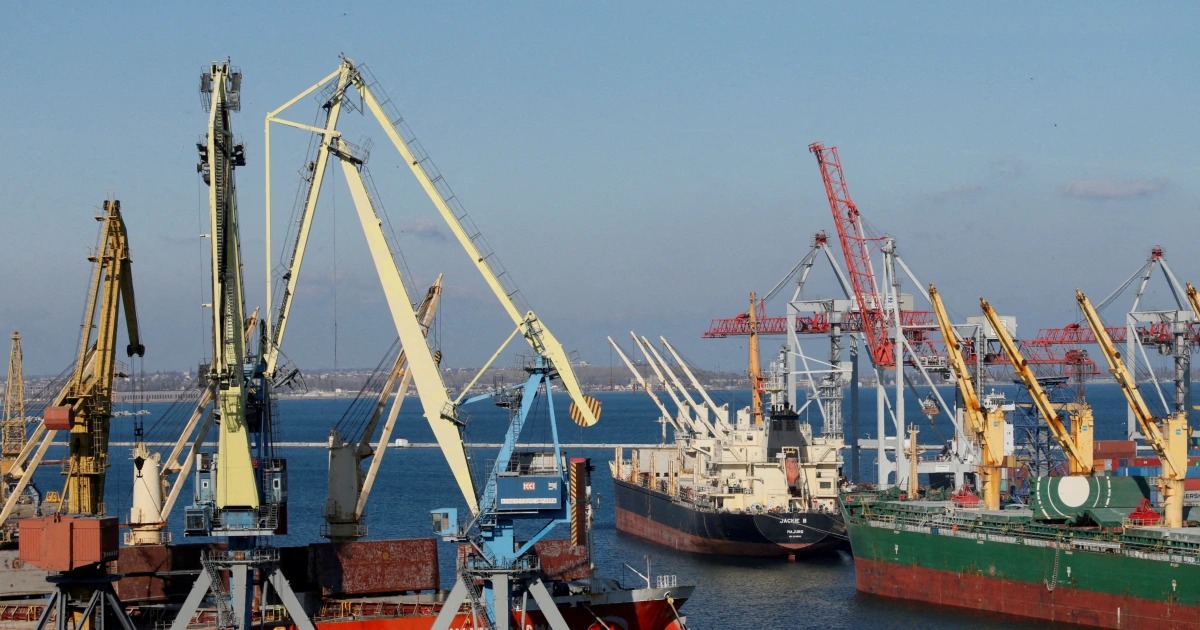- The UN negotiating with Russia to open Ukrainian ports and release grain.
- The talks are being led by UN aid chief Martin Griffith and Rebeca Gynspan.
- African countries imported more than half of their wheat from Ukraine and Russia.
The UN said on Friday that it is negotiating with Russia to open Ukrainian ports and release tens of millions of tonnes of grain in order to avert a global food crisis.
Amin Awad, the UN crisis coordinator for the war-torn country, emphasized the high stakes of the “very, very complex” talks to try to end the impasse one hundred days into Russia’s invasion of Ukraine.
Ships loaded with grain remain blocked in Ukraine, which before February was considered a global breadbasket as a leading exporter of corn, wheat, and sunflower seeds, feeding 400 million people around the world last year.
The talks are being led by UN aid chief Martin Griffith and Rebeca Gynspan, who heads the UN trade and development agency, Awad said via video link to reporters in Geneva.
The UN has warned that especially African countries, which imported more than half of their wheat consumption from Ukraine and Russia, face an “unprecedented” crisis caused by the conflict.
Food prices in Africa have already exceeded those in the aftermath of the 2011 Arab springs and the 2008 food riots.
Putin has said that Moscow is ready to look for ways to ship grain stuck in Ukrainian ports but has demanded the West lift sanctions.
But Awad highlighted that pressure is also being put on Russia from some of its allies feeling the pinch.
“There is a lot of shuttling between Moscow and other countries that have concerns,” he said.
On Friday, Russian President Vladimir Putin met the head of the African Union, Senegalese President Macky Sall, at his Black Sea residence in Sochi.
At the opening of those talks, Sall told Putin to “become aware” that African countries “are victims” in the Ukraine conflict.
Awad highlighted that Russia “has alliances in the South”, stressing that some of the impacted countries could help sway the situation.
“I am optimistic that something could give in, something could be made,” he said, voicing hope that we could “see a breakthrough”.
But, he stressed, the negotiations are “very complex” and “happening on many tracks.”
The UN’s World Food Programme said unblocking the ports would have a huge impact.
“The Black Sea ports are as it were the silver bullet when it comes to avoiding global famines, global hunger,” WFP’s emergency coordinator in Ukraine Matthew Hollingworth told reporters.
Read more: Russia to get $6.35 billion in extra oil and gas revenues in June
He said while efforts are underway to reopen the ports, the UN and others are also looking at other options for getting the desperately-needed grain out of Ukraine, including by truck, train or through ports in neighboring countries.
Such options, however, would entail “dribbling out 1-1.5 million tonnes,” he said, emphasizing that while this may sound like a lot, “it is nothing when this country was pushing out five million tonnes a month prior to this war.”
Awad agreed, citing a number of issues with transporting grain by truck or rail.
“It does have to really be a maritime movement to support 50 to 60 million tonnes of food out,” he said.
Read more: On 100th day of Russian invasion, Zelensky vows victory





















